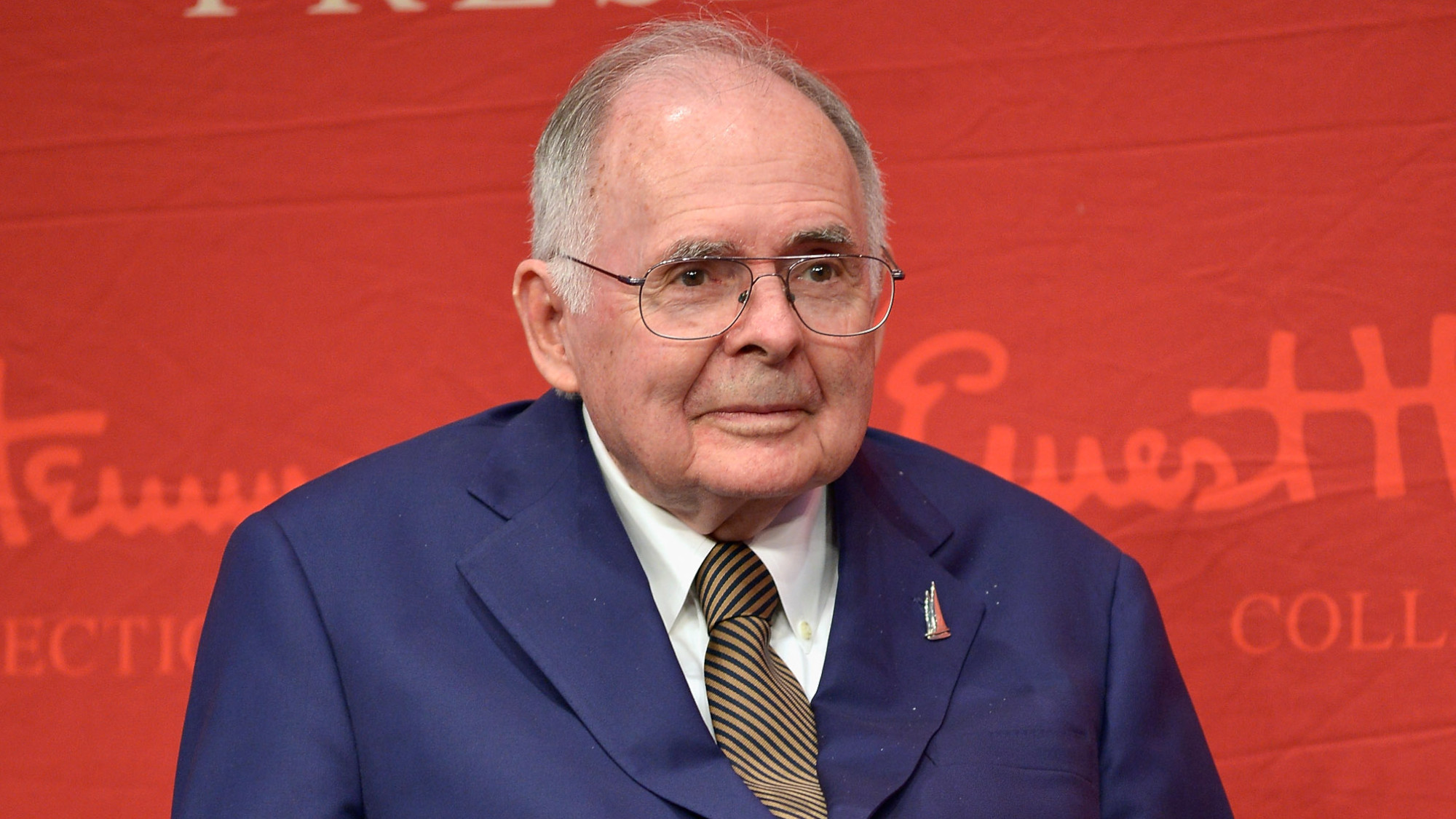Murray Handwerker, 1921–2011
The man who made Nathan’s famous
A free daily email with the biggest news stories of the day – and the best features from TheWeek.com
You are now subscribed
Your newsletter sign-up was successful
Murray Handwerker grew up literally surrounded by hot dogs. The son of the founders of Nathan’s Famous Hot Dogs, he was raised behind the counter of the original Nathan’s Famous stand in New York’s Coney Island. The 3-foot-by-3-foot crates that held the buns served as his playpens. Long after Nathan’s franks were served to British royalty and became a favorite of Al Capone’s, Handwerker could be found serving customers at the Coney Island stand. “That place meant so much to him,” said his son, Bill.
Handwerker’s parents, immigrants from Poland, opened their stand in 1916 and made it a success. But he “returned from Army service in World War II with a broader worldview and new ideas on expanding the business,” said the Chicago Sun-Times. The first change he made was to add clams and shrimp to the menu. He also oversaw the opening of new restaurants, first in New York City, then outside the region. He franchised the restaurants, took the company public, and “put its hot dogs on supermarket shelves across the country.”
Like many entrepreneurs, Handwerker overexpanded and had to scale back in the 1980s, said The New York Times. But the hot dogs kept the business afloat, buoyed by publicity stunts such as Coney Island’s July 4 hot-dog-eating contest. He sold the company to Equicor, a private equity company, in 1987. But he remained a feisty New Yorker all his life, razzing New York Mayor Ed Koch when Koch gave him a hard time about “the demise of the 5-cent hot dog.” The 5-cent frank, Handwerker shot back, was as obsolete as the 5-cent subway fare.
The Week
Escape your echo chamber. Get the facts behind the news, plus analysis from multiple perspectives.

Sign up for The Week's Free Newsletters
From our morning news briefing to a weekly Good News Newsletter, get the best of The Week delivered directly to your inbox.
From our morning news briefing to a weekly Good News Newsletter, get the best of The Week delivered directly to your inbox.
A free daily email with the biggest news stories of the day – and the best features from TheWeek.com
-
 Heated Rivalry, Bridgerton and why sex still sells on TV
Heated Rivalry, Bridgerton and why sex still sells on TVTalking Point Gen Z – often stereotyped as prudish and puritanical – are attracted to authenticity
-
 Sean Bean brings ‘charisma’ and warmth to Get Birding
Sean Bean brings ‘charisma’ and warmth to Get BirdingThe Week Recommends Surprise new host of RSPB’s birdwatching podcast is a hit
-
 Film reviews: ‘Send Help’ and ‘Private Life’
Film reviews: ‘Send Help’ and ‘Private Life’Feature An office doormat is stranded alone with her awful boss and a frazzled therapist turns amateur murder investigator
-
 Bob Weir: The Grateful Dead guitarist who kept the hippie flame
Bob Weir: The Grateful Dead guitarist who kept the hippie flameFeature The fan favorite died at 78
-
 Brigitte Bardot: the bombshell who embodied the new France
Brigitte Bardot: the bombshell who embodied the new FranceFeature The actress retired from cinema at 39, and later become known for animal rights activism and anti-Muslim bigotry
-
 Joanna Trollope: novelist who had a No. 1 bestseller with The Rector’s Wife
Joanna Trollope: novelist who had a No. 1 bestseller with The Rector’s WifeIn the Spotlight Trollope found fame with intelligent novels about the dramas and dilemmas of modern women
-
 Frank Gehry: the architect who made buildings flow like water
Frank Gehry: the architect who made buildings flow like waterFeature The revered building master died at the age of 96
-
 R&B singer D’Angelo
R&B singer D’AngeloFeature A reclusive visionary who transformed the genre
-
 Kiss guitarist Ace Frehley
Kiss guitarist Ace FrehleyFeature The rocker who shot fireworks from his guitar
-
 Robert Redford: the Hollywood icon who founded the Sundance Film Festival
Robert Redford: the Hollywood icon who founded the Sundance Film FestivalFeature Redford’s most lasting influence may have been as the man who ‘invigorated American independent cinema’ through Sundance
-
 Patrick Hemingway: The Hemingway son who tended to his father’s legacy
Patrick Hemingway: The Hemingway son who tended to his father’s legacyFeature He was comfortable in the shadow of his famous father, Ernest Hemingway